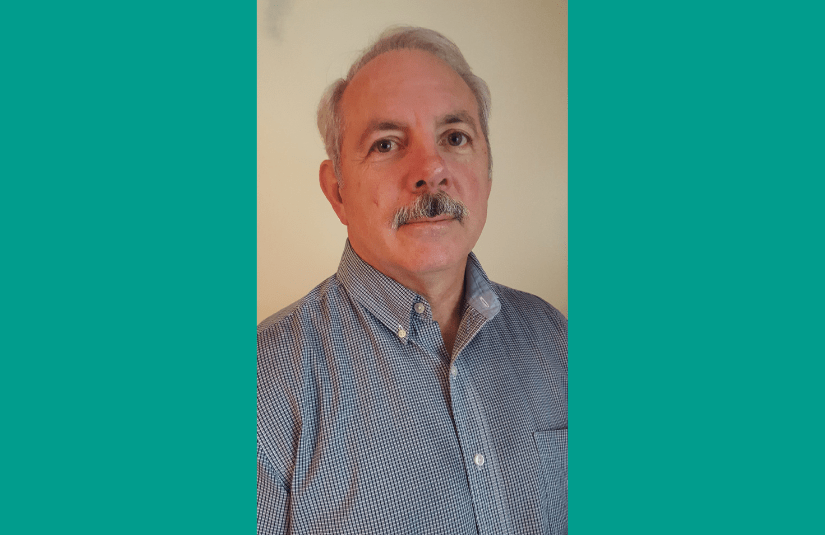On February 9, 2022, Reverend Mark Boyd looked in his rear-view mirror and realized he and his wife Kathy were about to be rear-ended. Before he could utter a word of warning, it happened. Another vehicle slammed into theirs—and the impact that took mere seconds started a months-long health journey for the pastor of Yorktown Baptist Church.
Reverend Boyd experienced a concussion and severe whiplash. When a month of physical therapy did not restore his ability to move or relieve the pain, he and his neurosurgeon, William H. McAllister IV, MD, opted for surgery. On Friday, May 13, 2022, Dr. McAllister placed two titanium plates and six screws into Reverend Boyd’s cervical spine, fusing three discs.
As challenging as the recovery from this type of surgery has been—Reverend Boyd calls the pain “off the charts”—he also describes his experience as a patient in Riverside Health as “wonderful.”
Before the accident, Reverend Boyd was already well-acquainted with Riverside. “As a certified chaplain, I’ve made hundreds of hospital visits. But it’s different when you’re on the receiving end. I hadn’t ever had any kind of inpatient surgery before.”
Reverend Boyd described “a kind of shock” as he and Kathy entered the Riverside pavilion. “I think most people, when they arrive for a procedure, don’t know where to go or what to do when they walk in the door. It’s a little bit traumatic,” he says. Within moments, the front desk staff had helped to orient them.
“We were surprised how fast things went,” he recalls. “We’d barely sat down before they called us to pre-op. They showed us around and helped us understand what would happen at each step.”
As much as Reverend Boyd was calmed by the patient experience, the way Riverside’s staff looked after his wife meant even more to him. She stayed with him until he went back for surgery.
“They didn’t just leave her in a waiting room and forget her,” he says. “Every 15-20 minutes they sent her text updates about how the surgery was going. That really meant a lot to her.”
Waking after surgery, Reverend Boyd was not able to use his voice—a big adjustment for a person used to addressing a congregation multiple times a week. Yet he received what he calls “royal treatment” from the Riverside staff attending him
“I knew everyone was there for me and would help me with anything I needed.”
Today, Reverend Boyd continues to recover. He still has sleep disturbances and difficulty swallowing from time to time. But his conversational voice is returning after six-weeks of doctor-recommended silence. In time, he hopes to be able to resume some of the athletic activity that was so much a part of his life before the accident. And of course, he wants to return to the pulpit.
“I believe the mental aspect of recovery is just as important as the physical aspect,” he says. He points out that the excellent care he received at Riverside was instrumental in helping him to remain positive during what he views as one of the most difficult periods of his life.
His message now? He wants the nurses, physicians, and health care providers at Riverside to know how life-changing their care can be.
“If they could just realize how important their role is to the patient and to their family,” he says. “I want them to know what a difference they make.”
